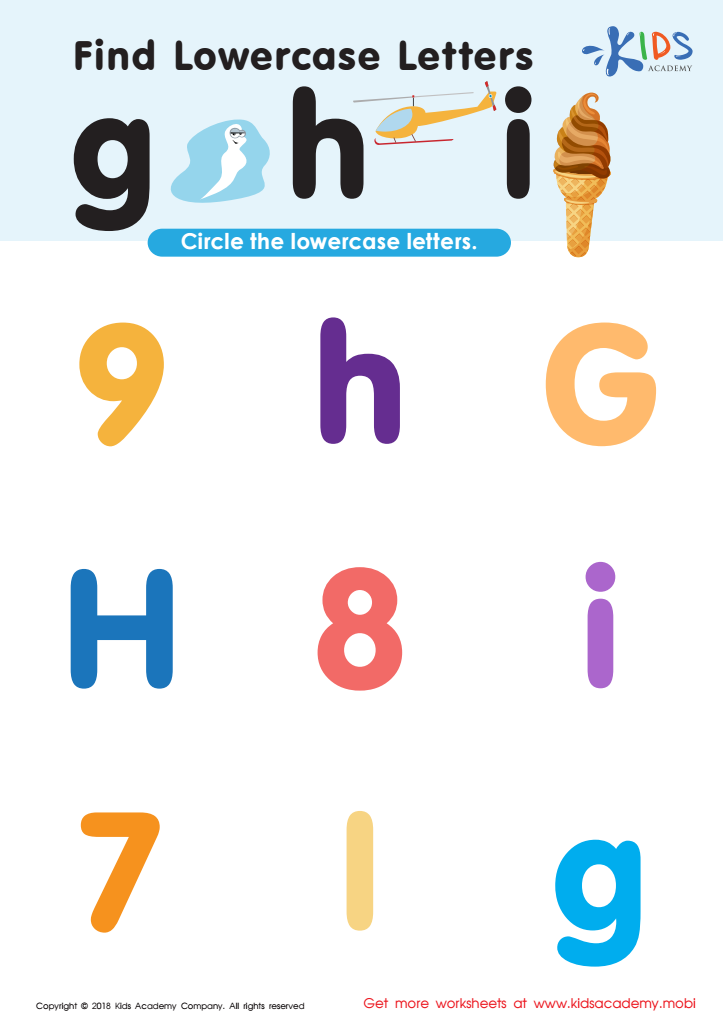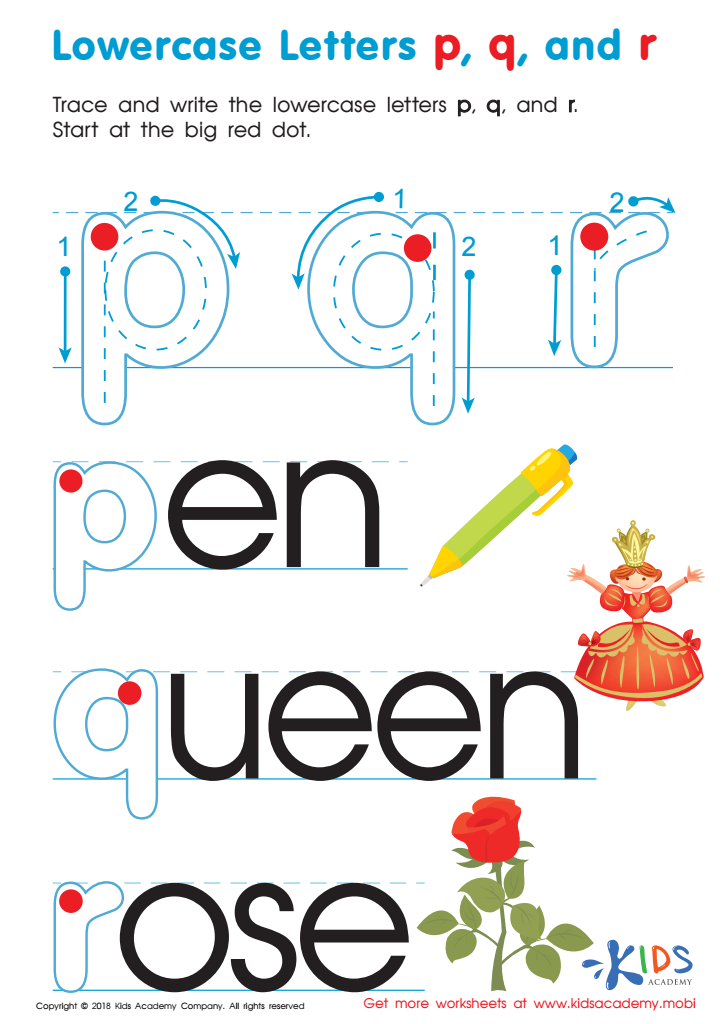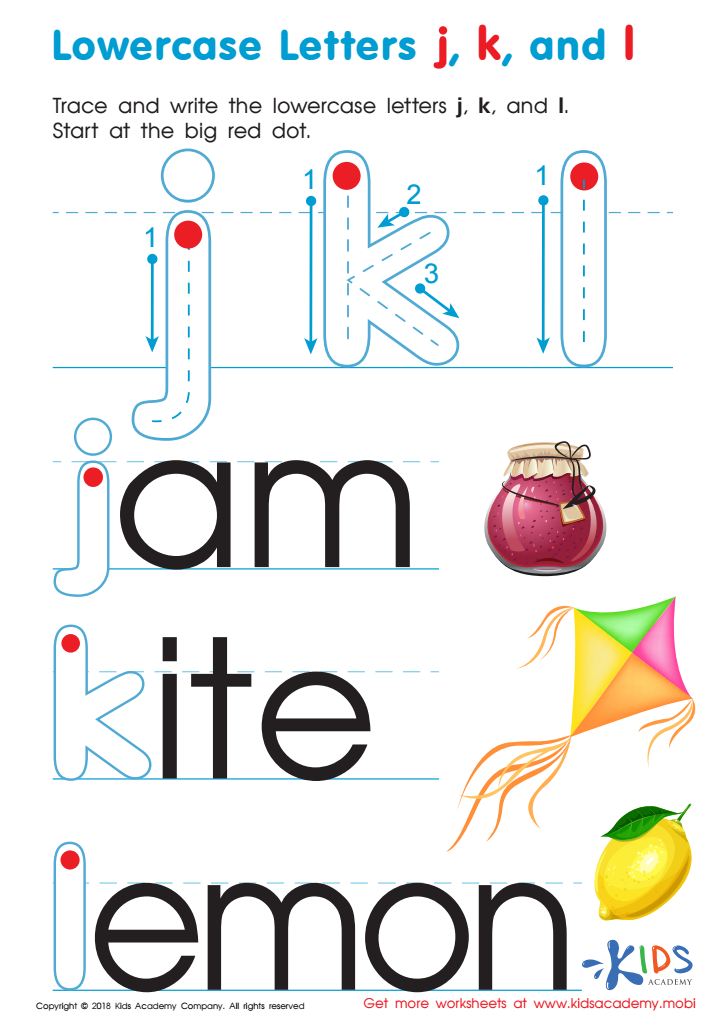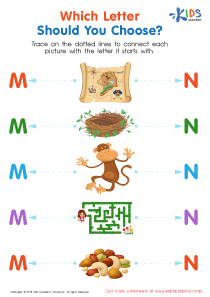Alphabet sequencing Normal Lowercase/Small Letters Worksheets for Ages 6-7
3 filtered results
-
From - To
Enhance your child's early literacy skills with our engaging Alphabet Sequencing Normal Lowercase/Small Letters Worksheets, designed specifically for ages 6-7. These worksheets provide a fun and interactive way for young learners to practice recognizing and ordering lowercase letters. As children develop their understanding of the alphabet, they will enhance their writing skills and boost their confidence. Each worksheet is thoughtfully crafted to make learning enjoyable, featuring colorful graphics and clear instructions. Perfect for home or classroom use, these worksheets are an excellent resource for reinforcing letter sequencing and preparation for future reading successes. Start your child's alphabetical adventure today!


Find Lowercase Letters g h i Worksheet


Lowercase Letters p q r Worksheet


Lowercase Letters j k l Worksheet
Alphabet sequencing of lowercase letters is a fundamental skill crucial for children aged 6-7 as they embark on their literacy journey. Mastery of this skill lays the groundwork for reading, writing, and effective communication.
Firstly, recognizing and accurately sequencing lowercase letters aids in developing phonemic awareness, enabling children to connect sounds with their corresponding letters. This connection is essential for decoding words, which is a key aspect of reading proficiency.
Secondly, proper sequencing helps students understand alphabetical order, which is vital for organizing information, such as locating books in a library or using dictionaries effectively.
Moreover, when children learn to sequence these letters, it reinforces their fine motor skills through writing practice, enhancing their ability to form letters correctly.
Additionally, engaging in alphabet sequencing fosters cognitive development, as children categorize and classify letters, promoting critical thinking skills.
Finally, reinforcing lowercase letter sequencing can boost self-confidence as children experience success in reading and writing tasks.
In summary, for parents and teachers, prioritizing lowercase alphabet sequencing is essential, as it supports a child's literacy development, cognitive growth, and overall readiness for future academic challenges.

 Assign to My Students
Assign to My Students










